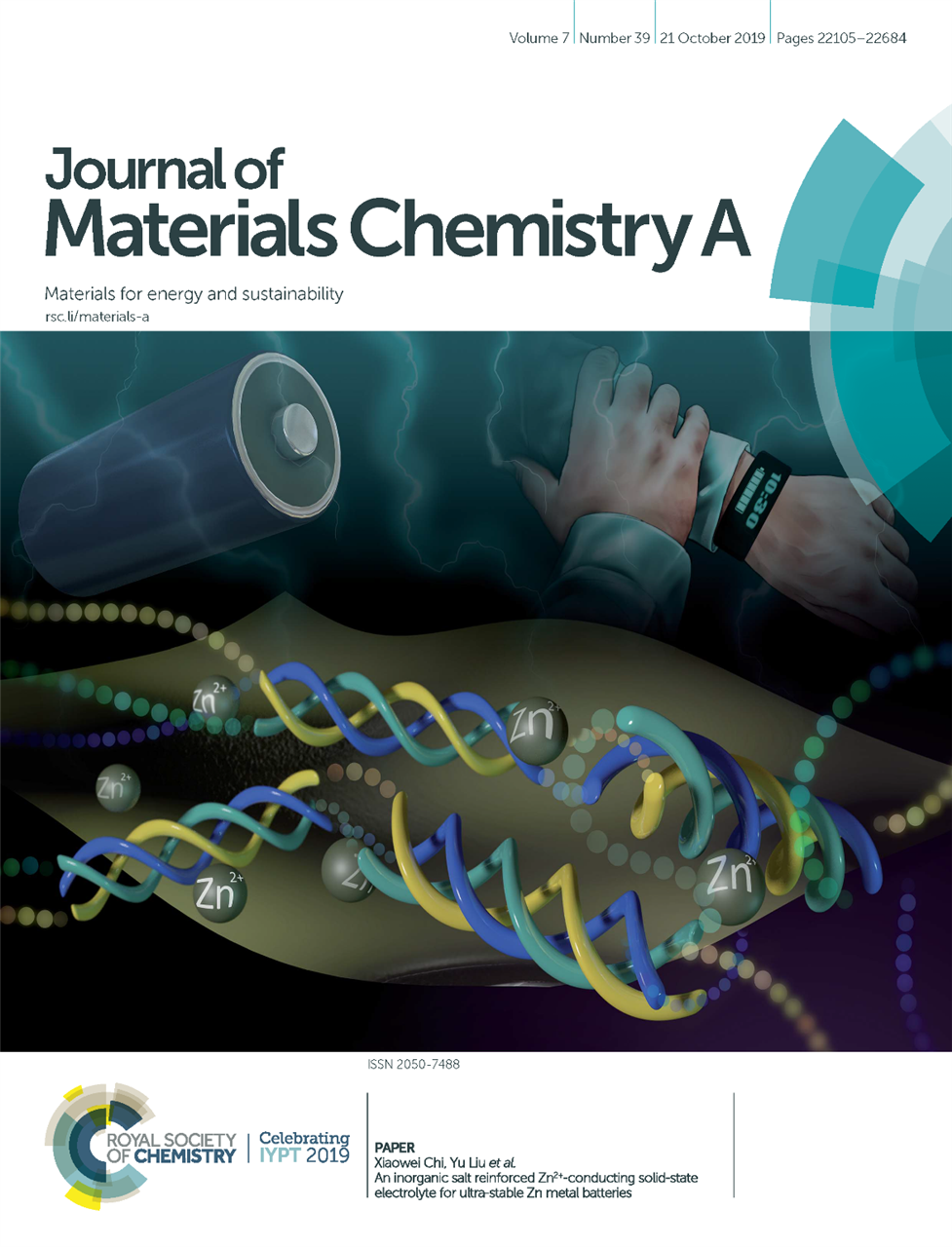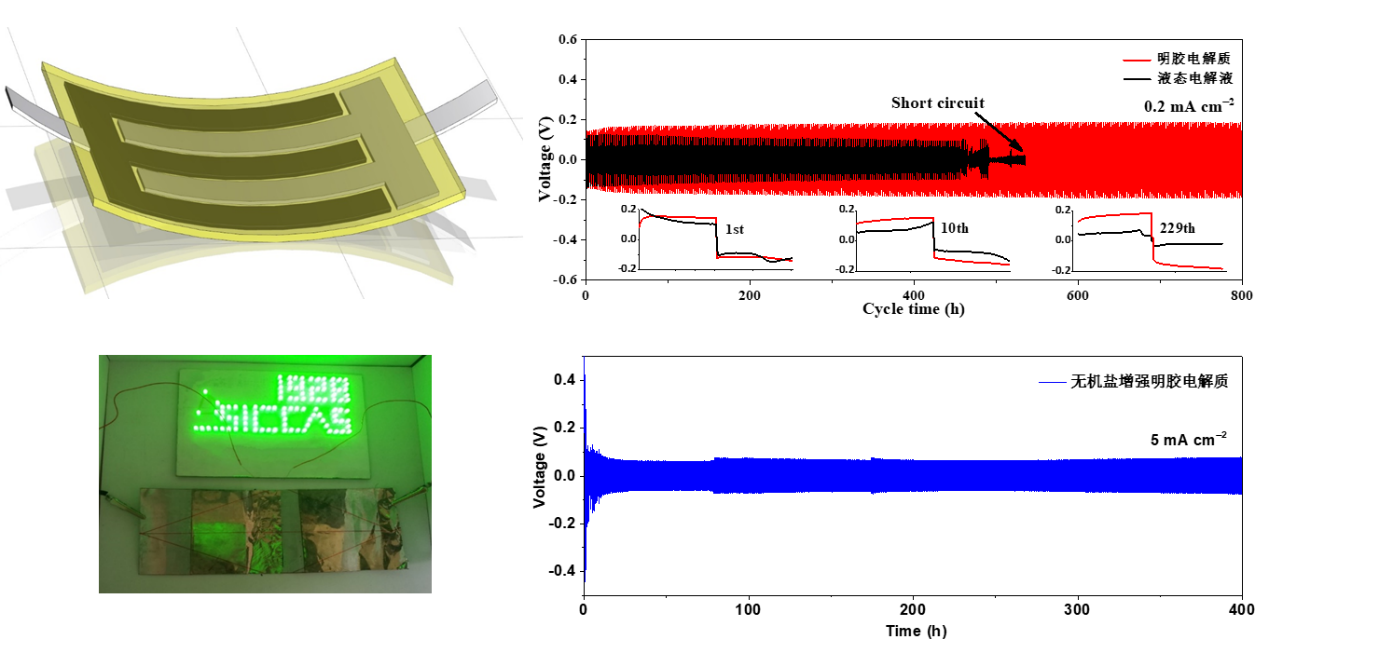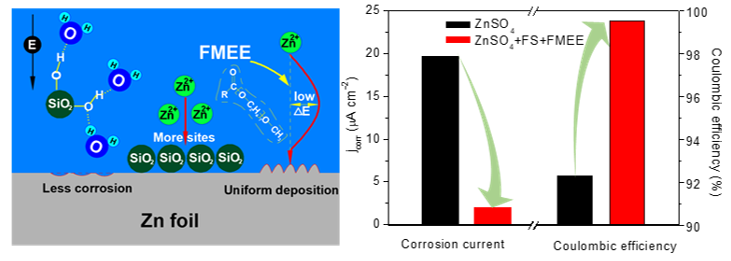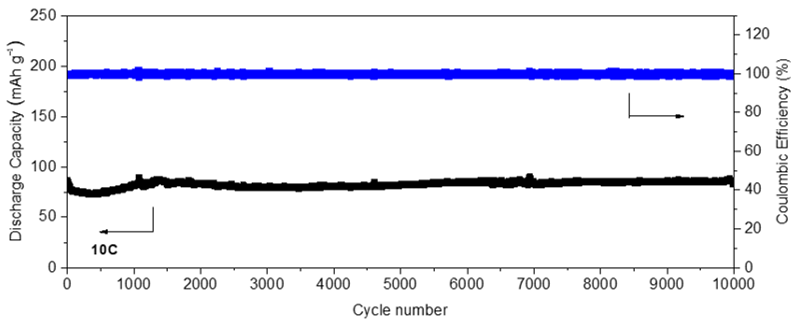[ Instrument Network Instrument Development ] Metal zinc is rich in resources and high in specific energy. As a negative electrode, it has a significant promotion advantage in batteries such as zinc-manganese, zinc-nickel, zinc-silver and zinc-air. However, in the traditional aqueous electrolyte, metallic zinc has serious corrosion and dendrite problems, which greatly limits the electrochemical performance and cycle stability of zinc-based batteries.

In order to effectively improve the stability of the zinc negative electrode, the research team led by Liu Yu, a researcher at the Shanghai Institute of Ceramics of the Chinese Academy of Sciences, carried out a series of work to develop a self-supporting gel electrolyte membrane with high stability and flexibility. This electrolyte has unique thermal reversibility and excellent inorganic salt compatibility. By constructing a stable electrode-electrolyte interface, the corrosion degree of the zinc negative electrode is significantly reduced, and the cycle stability of the symmetric battery is improved (0.2 mA cm-2 stable cycle 800 h) without significant dendrite formation. The unique structural design makes the battery flexible and resistant to external force. Further, based on the unique inorganic salt enhancement effect of gelatin, the gelatin electrolyte treated in the high concentration electrolyte is dehydrated, and a strong hydrophobic interaction is formed between the molecular chains, and the thermal stability and mechanical properties of the electrolyte are remarkably enhanced, and the current The water-based zinc-based battery self-supporting solid electrolyte separator is reported to have the best mechanical properties. Symmetrical cells can be cycled for up to 400 h at current densities up to 5 mA cm-2. At the same time, excellent mechanical properties also improve the safety of the battery and expand its application in the field of flexible batteries. Related results have been published in Journal of Materials Chemistry A (2018, DOI: 10.1039/c8ta08314b) and Journal of Materials Chemistry A (2019, DOI: 10.1039/c9ta07218g), in which the results of articles published in 2019 were selected as journal covers, related work. The first author is a doctoral student Han Qi.
The team also designed a new solid-water electrolyte system in which the gas phase nano-silica (FS) complexes water molecules through surface-active groups, inhibiting the corrosion of water to the zinc-negative electrode; and as an inorganic filler, Enhances the resistance of the membrane to dendritic penetration. The addition of nonionic surfactant (FMEE) reduces the activation energy of Zn2+ deposition, and the synergistic effect with silica significantly inhibits the growth of Zn dendrites and improves the coulombic efficiency. The relevant work results were published in the Journal of The Electrochemical Society (2019, DOI: 10.1149/2.1031906jes). The first author is PhD student Huang Jiaqi.
The team further developed a high-activity cathode material that matched the above results, achieving cycle stability of up to 10,000 cycles at 10C magnification. The related work has been accepted by the Journal of Power Sources, the first author is a PhD student Liu Yunzhao.
The author and instructor of the above research work is Liu Yu and associate researcher Chi Xiaowei.
Relevant research work has been supported by relevant projects of the Chinese Academy of Sciences and the Ministry of Science and Technology.



Yogurt Maker,Frozen Yogurt Machine,Yogurt Maker Machine,Frozen Yoghurt Machine
Foshan Lifecode Tech. Co., Ltd , https://www.lifecodetech.com.cn